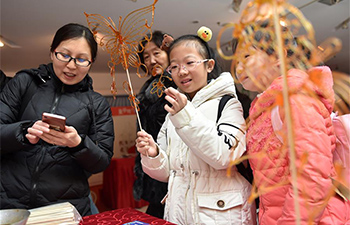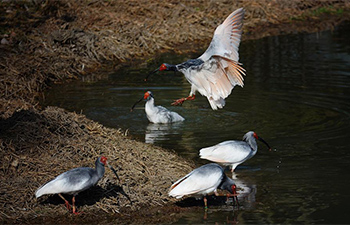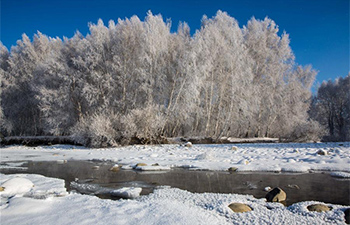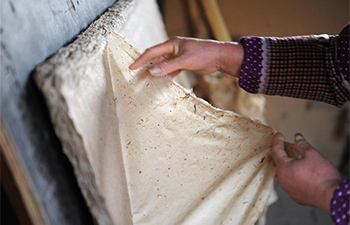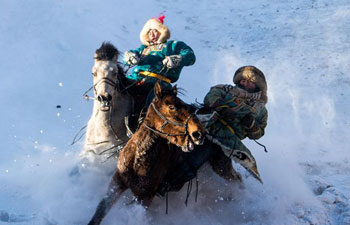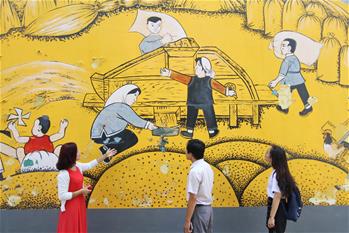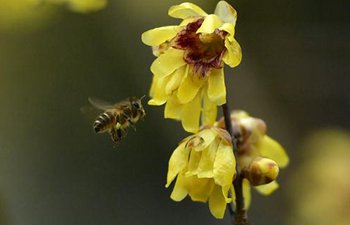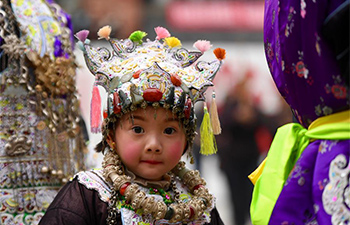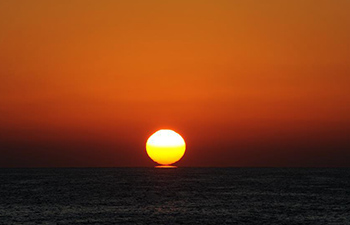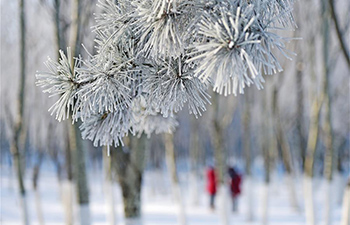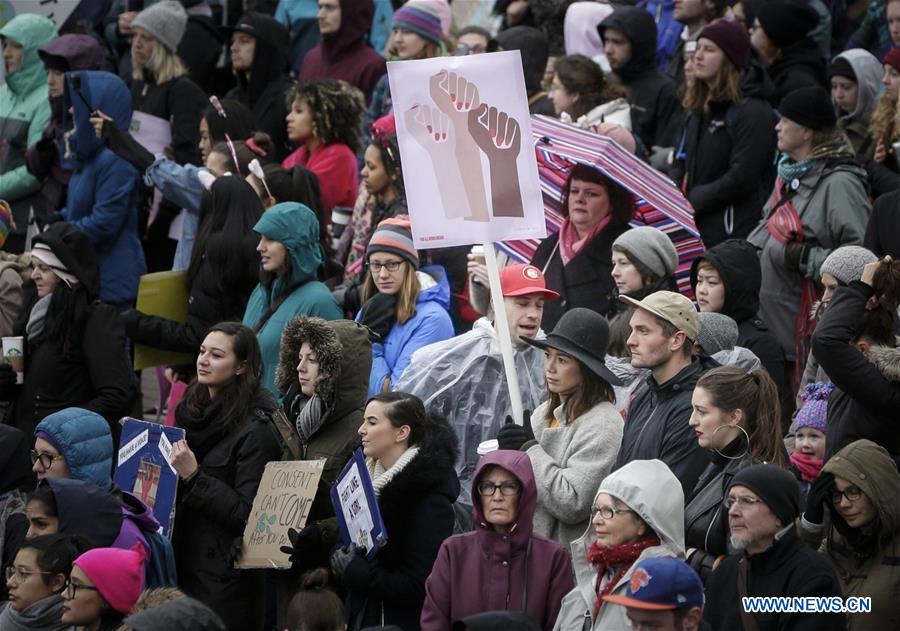
People attend the Women's March in Vancouver, Canada, Jan. 20, 2018. About 1,500 people took to the streets in downtown Vancouver for the second annual Women's March to support diversity and inclusivity on Saturday. (Xinhua/Liang Sen)
VANCOUVER, Jan. 20 (Xinhua) -- When university student Nathalie Lee told her parents she was attending the Next Step March here on Saturday to support diversity, inclusivity and positivity, they responded by asking: There's another one this year?'
"Yes," Lee replied to her parents before coming once again to Jack Poole Plaza in western Canadian coastal city of Vancouver on the anniversary of the international Women's March. "Equality still hasn't been reached," she said, while holding a sign that read "Fight Like a Girl."
"Last year there was this big momentum because [U.S. President Donald] Trump had just been inaugurated and there was this big reaction to that," she told Xinhua.
On Saturday, Lee was among about 1,500 other women, men and children at the event hosted by the March on Vancouver organization.
Similar marches were being held in cities around the world to mark the anniversary of the massive Women's March protests that emerged a year ago following Trump's inauguration.
The event here aimed to maintain the grassroots momentum that has taken hold around North America to resist white nationalism, misogyny and xenophobia and to stand-up for women, girls, indigenous peoples and minorities of all types.
Among the speakers at the event was Annie Ohana, a social studies teacher from L.A. Matheson Secondary in the Vancouver suburb of Surrey.
"What I tell my students is you're here for service to justice," she said over the loud speakers. "You're here to fight for justice. You're not here to just sit and not care and say I'm not old enough, I'm not good enough. People are telling me I can't. Those words should not be in any of our vocabulary."
Ohana, a recipient of the Prime Minister's Award for Teaching Excellence, challenged the marchers to find ways to fight for justice in their own lives, and in their own ways.
"At the root of all of this is education," she said "When you give us your kids, we need to be doing a good job. We need to be teaching them in an intersectional manner that teaches them about all of our cultures."
More must be done to include more diversity into Canadian text books and curriculums, she said.
Mariah Vanderzee stood near the 2010 Winter Olympic Torch in the plaza with a group of friends.
She held a sign that read: "She needed a hero, so she became one."
Vanderzee said she grew up admiring the comic super-hero Wonder Woman, who has emerged as a massive international icon in the last couple of years after appearing in a feature film.
"Now, these young women have Wonder Woman to look up to, but before that we pretty much had to be our own heroes and create that for ourselves," she told Xinhua.
Vanderzee said the fight against violence against women, inequality and xenophobia can't just focus on one day or one march. This is just a start.
"Look at all the different signs, look at all the different people who are here," she said. "It's heart-warming."




